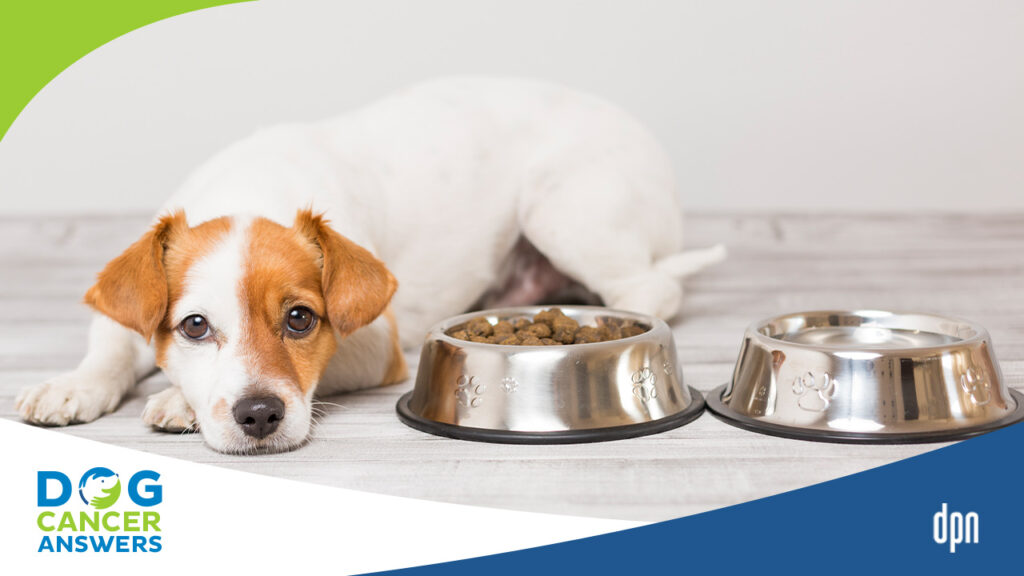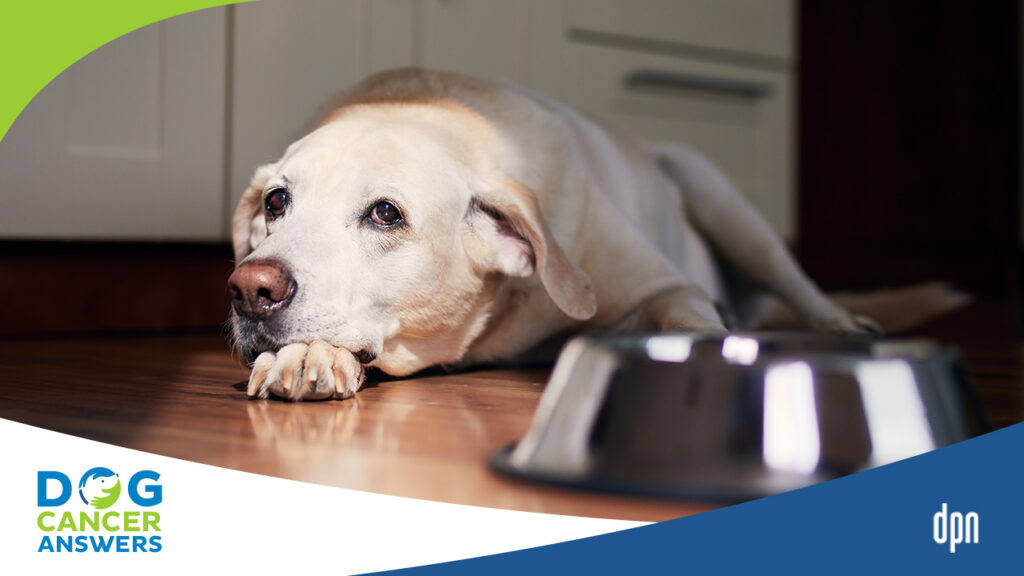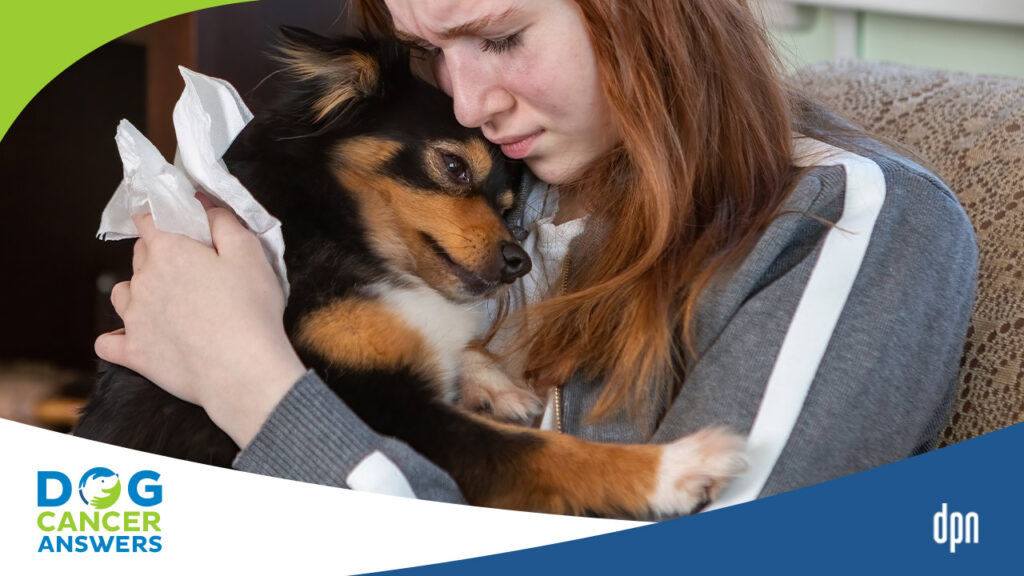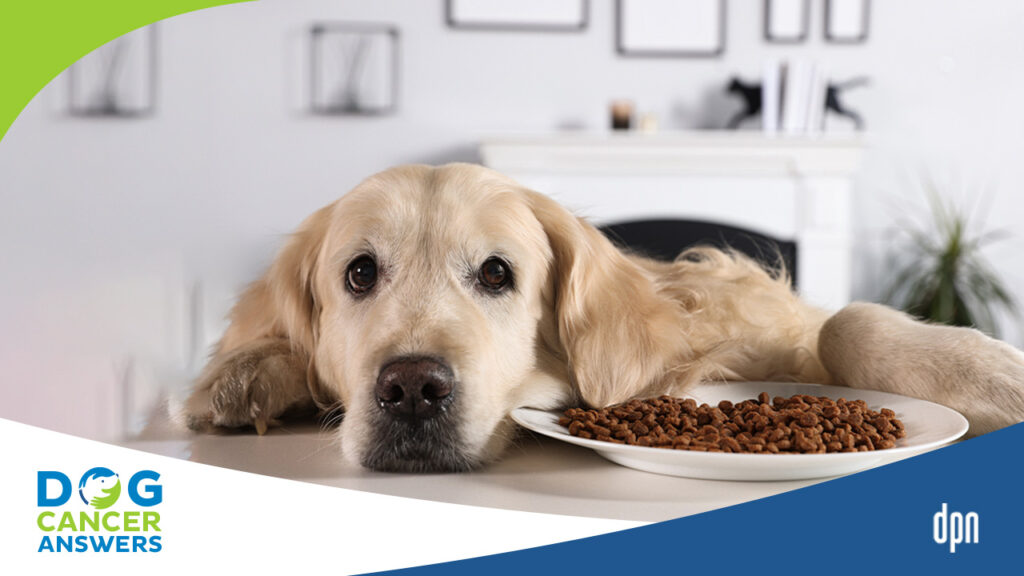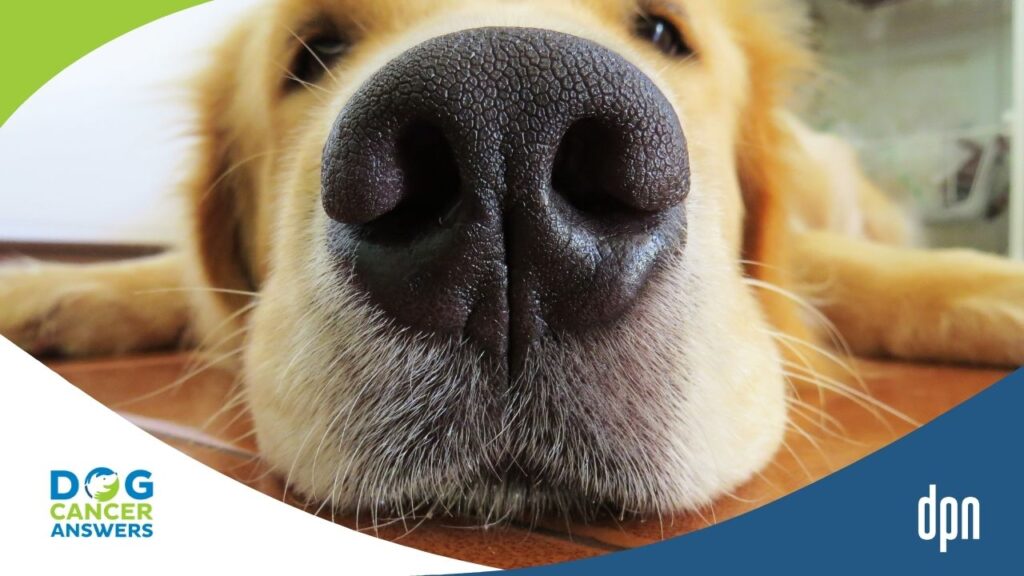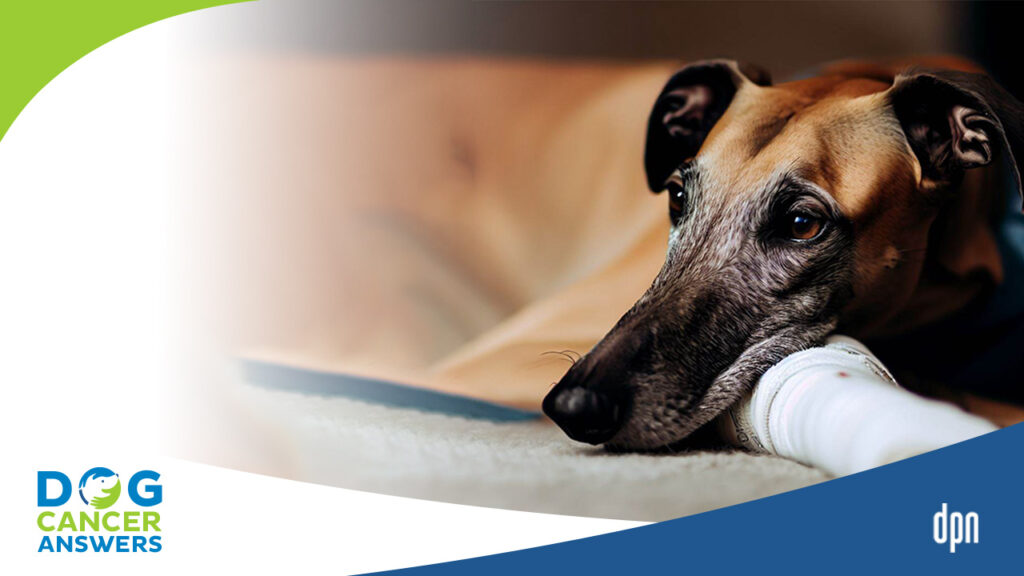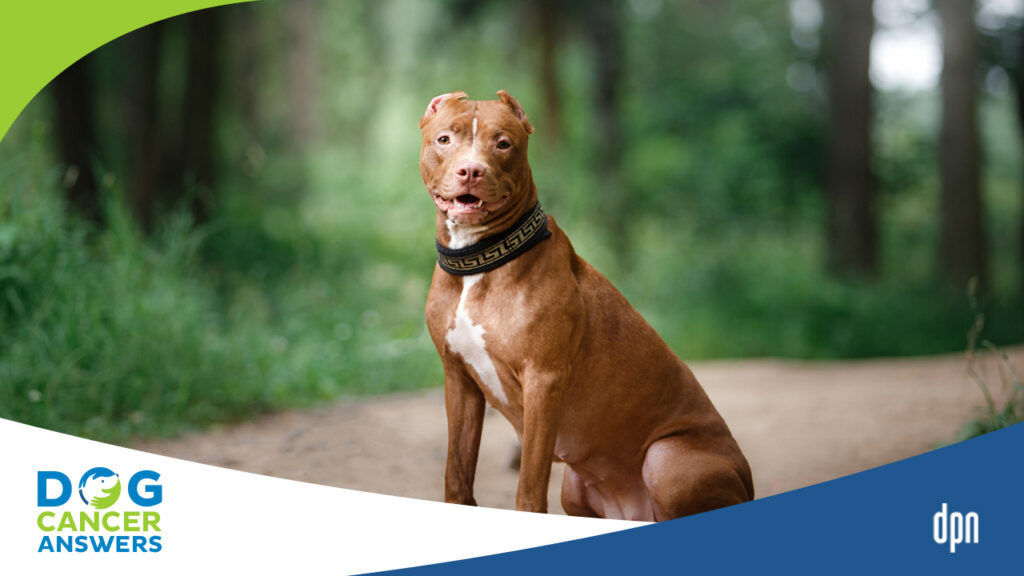EPISODE 119 | RELEASED May 3, 2021
Why Is My Dog Not Eating? | Dr. Trina Hazzah Deep Dive
Is your dog feeling sick, and that’s why he’s not eating? How can you tell? Integrative Oncologist Dr. Trina Hazzah explains what could cause your dog’s appetite loss.
SHOW NOTES
Dr. Trina Hazzah, integrative oncologist, is concerned about loss of appetite. When a dog won’t eat, it’s a sign that something is wrong … but what? It could be any number of things.
And the cause of the appetite loss is important. Because if you treat the wrong thing, your dog will still refuse to eat.
Dr. Trina walks us through some of the probable causes … and the best ways to treat them using the full spectrum of pharmaceuticals, supplements, and foods.
Drugs Dr. Hazzah mentioned:
Cerenia (maropitant citrate) for nausea and vomiting
Zofran (ondansetron) for nausea and vomiting
Entyce for appetite stimulation
Lorazepam, brand name Atavan, for anxiety
Cannabis, CBDA and THC for nausea.
Probiotics for the GI tract.
Happy Earth, a Chinese herbal blend for digestion.
Slippery Elm for digestion
Ginger for nausea
Nux vomica homeopathic for nausea
>> Dr. Trina Hazzah: [00:00:00] DPN Logo,
Well, how can you tell if a dog’s nauseous? One of the best ways I always say you can tell is if you put food in front of them and they walk over the food and they show interest, but then they walk away or they look away, they look almost like repulsed by it. So they go in their interests and they say, what is this?
And then they look at it and they turn their head. You kind of follow them with the plate and you say, Hey, come on, here you go. And they keep turning their head. They don’t want it. That’s usually a sign of nausea in our patients.
>> Announcer: [00:00:33] Welcome to Dog Cancer Answers where we help you help your dog with cancer. Here’s your host, James Jacobson.
>> James Jacobson: [00:00:41] Hello friend, today, we are doing a Deep Dive on to one of the most stressful things that can happen to a dog parent. That’s when your dog will stop eating. It’s the worst thing to watch your pup refuse food. It can make you panic. So how do you know what is causing the problem and how do you deal with it. To answer that and more we are joined by Dr. Trina Hazzah, an integrative oncologist who always knows just how to explain complex subjects. Dr. Trina, thank you so much for being with us today.
>> Dr. Trina Hazzah: [00:01:16] Thank you for having me.
>> James Jacobson: [00:01:18] Let’s talk about what happens when your dog is sick and won’t eat and it’s pretty distressing. There’s a whole plethora of options, but what do you recommend?
>> Dr. Trina Hazzah: [00:01:29] Y’know, it’s tough. It’s so hard to watch your baby not want to eat, right. I mean, especially if they have cancer, right? Like, that is the toughest part. And as an oncologist, unfortunately, that’s what I do see in my patient population. A lot of pets that may not want to eat. I think the first thing versus just saying, look, I’m just going to treat, with an appetite stimulant, cause I think that can be an easy go-to, is to actually think about what is causing the reduction in appetite. And there can be so many different factors. Right? What if it’s pain? My dog is severely painful, related to a cancer, really not related to a cancer it tore its cruciate and can’t walk and it’s so painful, it won’t eat. It, God forbid broke its bone. It has, I mean, anything there’s so many things that can create pain in dogs. And so is it the pain, and maybe giving an appetite stimulant is not the way to go. Cause my dog still hurts. So I give an appetite stimulant … Can you imagine you’re in horrific pain? And then you give me something to make me want to eat.
I’d probably kill you. Say, what are you doing? I need my pain to be reduced. So first thing is figuring out what the cause is. Is it pain. For my patient population, is it that they received a chemotherapy or targeted therapy or a, or radiation therapy. Is it a treatment that actually caused secondary nausea and anorexia?
So figuring out what’s causing the reduction in appetite is first and foremost, and then the next step is figuring out well, depending on what it is, treat that thing. So if it is pain, let’s use a pain medication. If it’s that my dog is really nauseous, secondary to its cancer itself, secondary to it’s pancreatitis, secondary to whatever disease process, but it’s really nausea related.
In my opinion, sometimes an appetite stimulant by itself, doesn’t do the trick. You actually have to use an anti-nausea medication.
>> James Jacobson: [00:03:23] And how do you tell if it’s nausea or pain? Or cancer cachexia, which is cancer cachexia is another thing. Right?
>> Dr. Trina Hazzah: [00:03:31] Yup. Well, cancer cachexia is kind of more obvious because your dog is stuffing its face.
It’s eating nonstop, but it just losing a ton of weight. Cancer anorexia is where they have cancer and the cancer’s preventing them from eating, either because there is an actual mechanical issue. So they have cancer of their mouth, or their throat or something like that. Or it’s that the cancer’s releasing certain proteins that are really inhibiting the ability for your pet to want to eat.
Right. And so that’s a tough one. That’s a really tough one. And unfortunately I’ve had certain cases where we have tried everything and it’s so hard to get them to eat. And the worst part of that is you have to treat the cancer to try to get them to eat, but it, how do you treat the cancer in a pet that’s not eating. Right.
It’s such a difficult process. You asked, well how can you tell if a dog’s nauseous? One of the best ways I always say you can tell is if you put food in front of them and they walk over the food and they show interest. But then they walk away or they look away, they look almost like repulsed by it. So they go in, they’re interested.
They say, what is this? And then they look at it and they turn their head. You kind of follow them with the plate and you say, Hey, come on, here you go. And they keep turning their head. They don’t want it. That’s usually a sign of nausea in our patients. Drooling is certainly a sign of nausea, when they’re drooling, that can definitely be one. An interesting thing that I think people don’t talk about in the oncology space too, is that when a patient receives chemotherapy, just like in people, their taste buds change, right? No one talks about that because our dogs and cats can’t tell us, Hey mom, you know that, that great beef and potato dish, you used to give me now tastes like metal.
I don’t like it. Right. And then guess what happens? A food aversion occurs because they were eating the beef and potato while they were getting their chemo. And it tasted like crap to them. And then you offer it once they’re done with their chemo. But — that thing is always stuck in their head. We all have that thing.
We’ve all done this, where we’ve gotten sick with certain food and we never want it again. Right. And so don’t forget that that can happen. And it actually, some of the chemotherapeutics can create a metallic taste in their mouth. So one of the tricks I, you know, I oftentimes tell my pet parents is why not try to give it in a dish that’s not a metal dish. Right. Cause that actually will create that, that will make that metallic taste even worse. So in people sometimes that are undergoing chemo and getting that side effect, they have to eat out of like plastic spoons and wooden spoons and forks and things like that. They can’t use metal.
So even just a quick trick, like that sometimes makes a difference in that patient population. For the nausea, you know, to be honest, there’s so many different medications. The two most common ones that are used that are prescription pharmaceutical. Medications is one called Cerenia and the other is Zofran or ondansetron.
Those are probably in my opinion, the best anti-nausea medications out there right now. They’re super easy to give. The Zofran one can actually be dissolved. A lot of them are just dissolvable on their own. And so if your pet really feels like, you know, really crappy and they don’t want to have to deal with taking a pill, sometimes just shoving it under their tongue and letting it dissolve can be pretty magical and easy for you and easier for them.
>> James Jacobson: [00:06:49] Excellent. Let’s stop right here for a moment and take a quick break. But when we come back, I want to ask you about Entyce, because it is a drug that I’ve seen work with my own dogs and let’s discuss it. We will be right back, stay tuned.
Okay, we are back. So when my Kanga had cancer surgery, we used another medicine. I think it was called Entyce.
>> Dr. Trina Hazzah: [00:07:17] Entyce is an appetite stimulant.
>> James Jacobson: [00:07:19] So what’s the difference.
>> Dr. Trina Hazzah: [00:07:20] So the appetite stimulant actually accelerates that, I think it’s ghrelin, that, that hormone, that creates an appetite. Right. And so that’s how Entyce works.
And so it actually gives an appetite, but it doesn’t do a lot for the nausea. So I oftentimes like to use them together. So I’ll try the nausea first
I think we were using lorazepam and Entyce together. So you would actually use them in conjunction cause you don’t know if it’s the nausea or they’re just not hungry.
Well, and as I’m a minimalist, I sometimes depending on how severe it is, if it’s just mild, I’ll say, why don’t we just try an anti-nausea first? And if it’s not working, we can always grab Entyce and try that versus putting so many things into your pet that already feels nauseous and doesn’t want to eat.
Right. But we know what that feels like. It’s a terrible feeling. And then of course, from more of the integrative standpoint, there are things like cannabis and certain cannabinoids, for instance, the acid form of CBD, like CBDA, is a very powerful, anti-emetic. Extremely powerful. And some of the other cannabinoids have antiemetic effects as well.
And anti-emetic means nausea. Yeah, anti-nausea exactly. And THC, because it actually binds to what they call the cannabinoid one receptor, it can stimulate an appetite almost in a somewhat similar way to Entyce. What’s interesting though, from a clinical perspective, I will tell you that, in people, you see the munchies. In dogs, we just don’t see it the same way.
I would say probably 10, 15%. It’s not as quick as it is in a person where, you know, they take a little bit of THC and then they can start to eat after chemo or whatever, it may be in a person. Dogs, we don’t see it — cats,I see it a little bit better than I do in dogs, but they’re just a smaller subset for sure, in dogs, and compared to people, and cats, certainly less than people, but better than dogs. Probiotics, depending on what the nausea is caused from. Right? If you have a seriously dysregulated GI tract, you need to actually add back in good bacteria. Probiotics could be your very best friend, right, support your immune system, support your GI flora. And then there’s specific Chinese herbs, that can treat what we call stomach and spleen chi deficiency or stagnation. And that’s the terminology we use to describe some of the vomiting and nausea that can be caused in pets that have those type of signs. I use one called Happy Earth, actually, that’s the name of one of the Chinese herbs I use, but some of the Western herbs to think about too, would be like Slippery Elm, that would be a good one. Ginger is phenomenal. I use ginger in my 19 month old when we have to get in the car and. Yeah. Oh, child, two legged, two legged child. Thank you. Two legged. Yep. He runs around and when we get in the car, he almost always vomits now. And so that’s a struggle. So, um, not only do we have a wee wee pad that sits right under him, we take the dog’s pad and we put it under the kid.
But I absolutely give him like crystallized ginger, I give him homeopathics, nux vomica a good one that can oftentimes be used. And so what we use in people, you obviously should check with your vet. I mean, don’t just grab anything and try, make sure it’s safe for your pet, but there are certainly a lot of crossover that you could use also in your pet.
>> James Jacobson: [00:10:34] Well, how many days can you kind of allow a dog to not be eating or is it depending on the dog size and weight?
>> Dr. Trina Hazzah: [00:10:41] It really depends on how your dog is feeling otherwise. So if your pet is running around, acting like, uh, you know, uh, nut, and eating, I mean, and drinking a ton and otherwise very hydrated. I don’t know if I would worry.
I’d probably wait a few more days. Try to become creative with what you might offer. Listen, if your pet doesn’t want the dog food, and you’ve tried now for a little while a day or so, and you’re like — they have ignored this food, perhaps, maybe just trying to boil some chicken and rice and seeing if that does the trick. We all have had sour stomachs.
Right. And so sometimes you just need something to kind of get your appetite back to normal and supporting with certain medications, herbal or pharmaceutical, and maybe being a little creative and being a little bit patient with your pet. Right. And saying, Hey, look, if I didn’t feel good, I totally get it.
But you know what, when I don’t feel good, I want piece of bread and you know, cream cheese. That’s my thing.
>> James Jacobson: [00:11:36] Toast and
>> Dr. Trina Hazzah: [00:11:36] Toast, yeah!
>> James Jacobson: [00:11:37] And sometimes I would imagine. If your dog’s not eating, it’s kind of good to maybe vary the food and see if something that is a little bit more tempting, perhaps toast with cream cheese. Uh, does the trick
>> Dr. Trina Hazzah: [00:11:48] Exactly, no, I totally agree with you. Cottage cheese, whatever you can get. The one thing I always say is like, don’t go down to the local 7/11 and buy like a, huge hot dog, right? Because what’s going to happen is your dog will get really bad diarrhea or pancreatitis or something like that. So just be careful. If your dog is used to eating hot dogs, go for it.
But if your dog is only used to eating dog food, just be very careful. The boiled chicken and rice, no seasoning, nothing like that. Very, very bland. The blander, you, you can go that they’ll eat it is probably the better and the safer way to go. But if your dog is used to eating half your pizza with you, then you’ll probably get away with, you know, giving some pizza or whatever else.
>> James Jacobson: [00:12:26] And because dogs have such an incredible sense of smell, I imagine the aroma makes a difference too. Are there any things to tweak the aroma to make it smell and more enticing?
>> Dr. Trina Hazzah: [00:12:37] Oh, totally. Like, um, I always say like tuna fish, right? Open up a can of tuna dogs, cats.
I mean, its, uh,baby food. I think certain baby foods can be really strong. If you cook, like if you grill meat or you boil meat or you broil meat. I mean, whatever you do, the smell of meat can be very, and it depends again on how severe the anorexia is and the cause again, behind it. If you again are in horrific pain and you make me meat, I really don’t care.
I hurt, right. So treat my pain and then give me the meat. Right. So, really being able to be in touch with what’s causing those issues and asking your vet, can you, do you mind just taking a peek at my dog and figuring out why he stopped eating? It may be something where it can be an easy fix or it might require more diagnostics to really figure out what the cause of it is.
>> James Jacobson: [00:13:28] But you don’t have a lot of time. You can’t just let this go on for days.
>> Dr. Trina Hazzah: [00:13:32] Yeah, I wouldn’t wait multiple, especially again, if your pet isn’t feeling well. Again, if your dog is running around and drinking a lot and it’s hydrated, I’m certainly less worried, because dehydration becomes a really big problem. Right.
And they get worse and worse. But if your dog is running around and stuff, you could totally wait a few days. I mean, they’re not eating anything. So a lot of times people will say to me, my dog is still eating a ton of treats. Or my dog will eat chicken, but won’t eat anything. You know, then it’s like, okay, you can wait a few days.
>> James Jacobson: [00:13:57] It’s just being a brat at that point.
>> Dr. Trina Hazzah: [00:13:59] Or they’re just playing you. Right. Cause they’re smart. And they know exactly what mom and dad are going to do. Right? So …
>> James Jacobson: [00:14:05] Dr. Trina Hazzah thank you so much. This has been awesome.
>> Dr. Trina Hazzah: [00:14:09] Thank you for having me again. I always enjoy chatting with you.
>> James Jacobson: [00:14:12] It’s always a pleasure having you on, we’ll make sure that all the names of the drugs and the supplements that you mentioned are listed in the show notes for today’s episode.
Well listener, you can find the show notes on our website at DogCancerAnswers.com. That’s also where you can find a back catalog of all of our episodes. Now let’s take a quick break, but we’ll be right back with more after this.
As Dr. Trina mentioned, dogs with cancer often stop eating, not due to the cancer, but due to conventional treatments like chemotherapy and radiation. The anesthetics from surgery can also cause nausea for awhile. After surgery, a dog sometimes doesn’t eat for days. So it is a good idea to ask your veterinarian or oncologist about how to address appetite loss as soon as possible after treatment.
Sometimes we think we’ll use those just in case meds only if we see our dog vomit, but nausea is a big problem with appetite loss. And the signs of nausea aren’t as obvious as vomiting. So ask your oncologist about giving Cerenia or something for nausea right away, rather than waiting. Your dog might eat sooner if you address the nausea upfront. That’s just a tip. And now that we’re speaking of veterinarians, I hope you will not forget to tell your veterinarian and perhaps five friends, about this show. Vets like this program, but keep in mind that cancer is a number one killer of dogs. So every dog lover should understand a little bit about it.
So, telling your friends about this podcast now may help them, sadly, later on, but they will be glad that they know about it from you. This episode is actually a really good one to share because dogs can stop eating for so many reasons, not just cancer. So please, subscribe, like, and follow us on social media.
If you’re on Facebook, you should join our support group. It’s called Dog Cancer Support. It’s a private group for readers of The Dog Cancer Survival Guide, which is the book by Dr. Dressler that sponsors this show. You can get to the Facebook support group quickly by going to the website, DogCancerSupport.com.
And, while you at it, subscribe to our newsletter, Dog Cancer News. You can get that at DogCancerNews.com, or at the link in the show notes. You’ll get it informative, helpful, even sometimes entertaining emails every week.
Uh, those touchstones do you know, they’re here to our mind me to remind you that you can always call our Listener Line at (808) 868-3200, and leave a question for one of our veterinarians. We’ll use your recorded question to inspire a future show. And hey, even if you know the answer to the question, why don’t you leave it anyway?
You can help someone else. Think of the one thing you wish you knew sooner and call in and ask a question about it. That way you’ll help future dog lovers find out what you wish you had known sooner. The number again to call is (808) 868-3200, (808) 868-3200. Well, that is it for today’s show, friend.
Thanks for listening to this Deep Dive with Dr. Trina Hazzah. From all of us here at Dog Podcast Network, I’m James Jacobson, wishing you and your dog a warm aloha.
>> Announcer: [00:18:00] Thank you for listening to Dog Cancer Answers. If you’d like to connect, please visit our website at DogCancerAnswers.com or call our Listener Line at (808) 868-3200. And here’s a friendly reminder that you probably already know, this podcast is provided for informational and educational purposes only.
It’s not meant to take the place of the advice you receive from your dog’s veterinarian. Only veterinarians who examine your dog can give you veterinary advice or diagnose your dog’s medical condition. Your reliance on the information you hear on this podcast is solely at your own risk. If your dog has a specific health problem, contact your veterinarian.
Also, please keep in mind that veterinary information can change rapidly. Therefore, some information may be out of date. Dog Cancer Answers is a presentation of Maui Media in association with Dog Podcast Network.
Hosted By
SUBSCRIBE ON YOUR FAVORITE PLATFORM
Topics
Editor's Picks
CATEGORY


